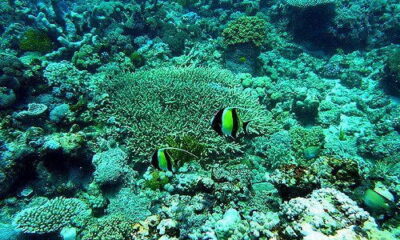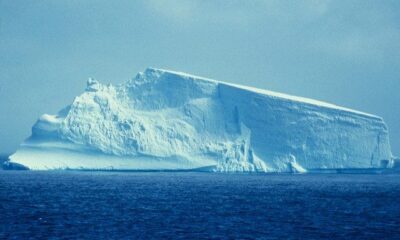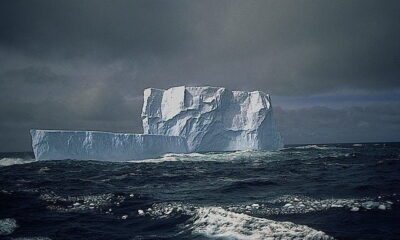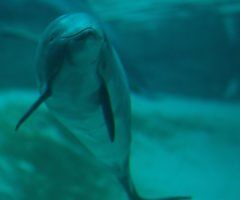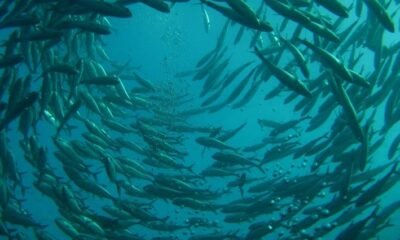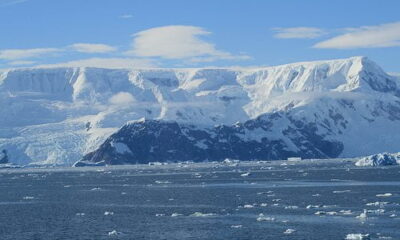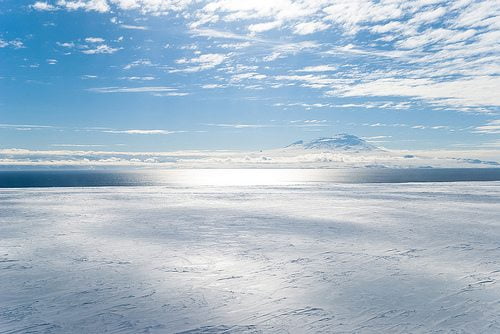

Environment
Despite substantial Chinese movement on Antarctic Conservation, Southern Ocean progress remains stalled
The Commission for the Conservation of Antarctic Marine Living Resources (CCAMLR) has again failed to agree to protect key areas in the Ross Sea and in East Antarctica at its annual meeting in Hobart.
However, a statement of support by China for a revised Ross Sea Proposal– which has in past years actively blocked this proposal, and a statement of commitment by Russia for inter-sessional discussion of the proposal, has given hope to a process that has thus far been clouded by inaction, uncertainty and active blocking.
The partners of the Antarctic Ocean Alliance (AOA) highlighting CCAMLR’s fifth failure to reach consensus on this issue over a four-year period, called into question its overall ability to deliver on conservation commitments, specifically its capacity to deliver the large-scale network of marine protected areas (MPAs) it had committed to create by 2012.
Two proposals for MPAs in the Ross Sea and East Antarctic coastal region were once again on the table during this week’s meeting, but the required final consensus by CCAMLR’s 24 member nations and the EU was actively blocked. In the case of the Ross Sea, a last-minute expanded proposal negotiated by the proponent countries United States and New Zealand secured China’s support. In the case of East Antarctica, both China and Russia blocked its adoption.
The proposed designations would provide needed long-term protection of many species, including penguins, seals and whales and their critical habitats. In addition, the MPAs would enable scientific research to occur in this near-pristine wilderness, protecting some of the only Southern polar areas left on earth to study marine ecosystems that have remained relatively untouched by human interference.
“China’s endorsement of the expanded Ross Sea proposal is a positive development and we are encouraged that Russia expressed interest in working on this in the coming year. Ultimately, however, the late-breaking nature of the proposal and lack of substantive work early in the meeting resulted in a replay of the previous four meetings, with no consensus reached, no Southern Ocean protections and no relief for the rich ecosystem and millions of animals that call these waters home,” said Andrea Kavanagh, Director of The Pew Charitable Trusts global penguin conservation program.
“What is most disturbing about this year’s failure is the systematic disintegration of CCAMLR’s ability to deliver on its mandate for marine protection. CCAMLR not only struck out again in efforts to create MPAs, but also failed to take necessary measures to improve oversight of fisheries and obtain data critical for effectively managing those fisheries in an era of climate change. At the same time, we are heartened that China is willing to work on protection of the Ross Sea. We hope that China’s new position ensures its future support for the protection of East Antarctica as well, so that in 2016 we see the adoption of both MPA proposals,” said Mark Epstein, Executive Director of the Antarctic and Southern Ocean Coalition (ASOC).
“The continued stalemate at CCAMLR raises questions about the commitments of countries to use every tool at their disposal to build resilience to climate change impacts. Such a disappointing outcome in a year when the international community agreed at the UN – by consensus – to work on a new agreement to protect high seas biodiversity is inexcusable,” added Maritza Schafer, Global Campaign Leader, Oceans, Greenpeace International.
“It is appalling that while the majority of CCAMLR members are more than ready to create significant marine protected areas in Antarctic waters, China and Russia have blocked efforts to negotiate a successful outcome. We commend the efforts of the proponent countries, and others such as Argentina, Chile, Japan, Norway, South Korea, and Ukraine, who spoke out in favor of the MPAs and the promotion of solid Antarctic marine protection in Antarctica, as well as China’s support for the Ross Sea Proposal, and we hope they continue to demand the urgent protection required for Southern Ocean ecosystems,” added Jill Hepp, Project Director of the Antarctic Ocean Alliance.
This year’s CCAMLR meeting began only a few weeks after the hugely successful Our Ocean conference in Chile. In stark contrast to the inaction of the two-week CCAMLR meeting, Our Ocean generated global excitement with the announcement of a number of new, very large MPAs around the world. The new MPAs represent an additional 2,473,000 square kilometres of highly protected marine areas, including huge areas around New Zealand’s Kermadec Islands, and around Chile’s Desventuradas (Unfortunate) and Easter Islands. Earlier this week, Palau’s President established one of the world’s largest protected areas of ocean in the Pacific island nation’s waters.
CCAMLR immediately precedes the 21st Session of the Conference of the Parties to the United Nations Framework Convention on Climate Change (COP21) taking place in Paris, France in early December 2015. Climate change is already having an impact on the Antarctic environment, particularly in the Antarctic Peninsula region, one of the fastest warming areas on earth.
Marine protected areas can confer significant benefits in the context of climate change and ocean acidification. They can increase species abundance and diversity and therefore ecosystem resilience to climate change and ocean acidification by reducing stress from human activities. They also provide reference areas where the effects of climate change and ocean acidification can be researched and differentiated from the effects of natural variability and human activities.
The Antarctic Ocean Alliance partners will spend the coming year seeking clarification on the points of consideration submitted by blocking countries so that when we attend CCAMLR in 2016 we all delegations prepared to meet CCAMLR’s conservation mandate and make good on commitments for large-scale marine protection. The AOA has identified approximately 40% of the Southern Ocean that warrants lasting protection.


 Environment12 months ago
Environment12 months agoAre Polymer Banknotes: an Eco-Friendly Trend or a Groundswell?

 Features11 months ago
Features11 months agoEco-Friendly Cryptocurrencies: Sustainable Investment Choices

 Features12 months ago
Features12 months agoEco-Friendly Crypto Traders Must Find the Right Exchange

 Energy11 months ago
Energy11 months agoThe Growing Role of Solar Panels in Ireland’s Energy Future
